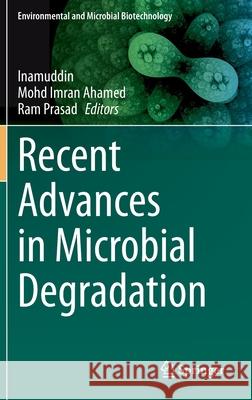Recent Advances in Microbial Degradation » książka
topmenu
Recent Advances in Microbial Degradation
ISBN-13: 9789811605178 / Angielski / Twarda / 2021 / 483 str.
Kategorie:
Kategorie BISAC:
Wydawca:
Springer
Seria wydawnicza:
Język:
Angielski
ISBN-13:
9789811605178
Rok wydania:
2021
Wydanie:
2021
Numer serii:
001064537
Ilość stron:
483
Waga:
0.85 kg
Wymiary:
23.39 x 15.6 x 2.69
Oprawa:
Twarda
Wolumenów:
01
Dodatkowe informacje:
Wydanie ilustrowane











